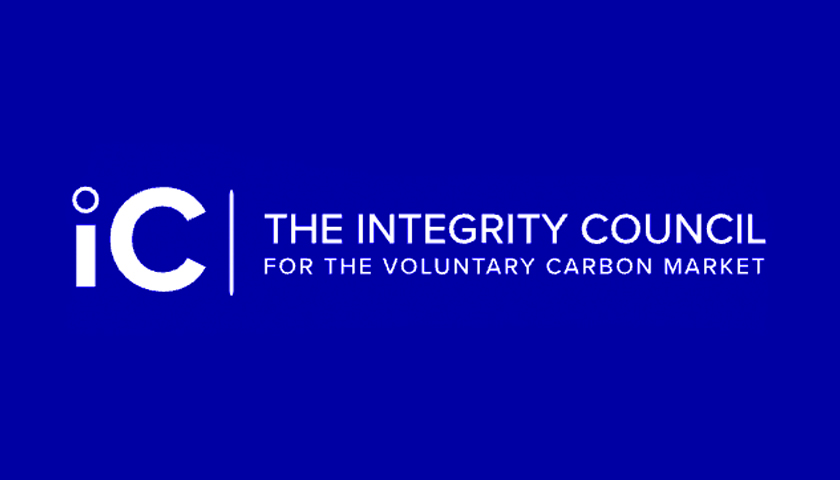Approval conditions require both cookstove and household biodigester projects to use the most robust tools and methods available for estimating fuel consumption and monitoring usage.
The Integrity Council for the Voluntary Carbon Market announced that the following cookstove and household biodigester methodologies meet its high-integrity Core Carbon Principles (CCPs), provided that certain conditions are met:
Clean cookstove methodologies
- Gold Standard – Methodology for Metered & Measured Energy Cooking Devices versions 1-1.2
- Gold Standard – Reduced Emissions from Cooking and Heating – Technologies and Practices to Displace Decentralized Thermal Energy Consumption (TPDDTEC) version 4.0
- Verra (VCS) – VM0050 – Energy Efficiency and Fuel-Switch Measures in Cookstoves version 1.0
Household biodigester* methodologies
- Gold Standard – Methodology for Animal Manure Management and Biogas Use for Thermal Energy Generation v1.0
Carbon credits generated by these methodologies can now be tagged with the CCP label, provided that all of the following conditions are met:
- The fraction of non-renewable biomass (“fNRB”) must be derived using the modeling fuelwood savings scenario (MoFuSS) model OR the Clean Development Mechanism default of 0.3 may be applied for a limited period** AND
- Fuel consumption must be determined either by using a Kitchen Performance Test (KPT) or Controlled Cooking Test (CCT) OR using methodology default values with cross checks on fuel savings, AND
- For projects that use charcoal, a direct charcoal emission factor (which may include production emissions) or a wood to charcoal conversion factor of four to one is used.
These recently published methodologies along with the nuanced conditions required by ICVCM for CCP labelling address concerns with cookstove carbon credit integrity by constraining the fNRB rate and requiring more rigorous methods for determining baseline fuel use and for monitoring cookstove usage, all of which reduces the risk of overcrediting. The market average for fNRB rates is 0.86, while ICVCM’s conditions mean that the fNRB rates of CCP-labelled credits will be significantly lower, typically less than 0.5.
Efficient cookstove and household biodigesters can have multiple environmental and social benefits, as noted by the Clean Cooking Alliance. In addition to reducing emissions from cookstoves themselves, they can improve health, social and economic outcomes in the Global South, particularly for women and children. For example, clean cooking reduces fuel needs, thus reducing the burden on families to collect, buy, or trade other resources, such as food, for fuel. It can also improve health by lowering exposure to household air pollution and reduce the amount of wood required for cooking, thereby reducing environmental degradation and pressure on forest resources.
Amy Merrill, CEO of the Integrity Council, said: “We know how important clean cooking is for homes around the world and how much impact it can have in health, pollution and climate terms. These first cookstove and biodigester approvals will strengthen the sector for the future: the strict conditions for CCP labelling show what is best in class. This will provide the confidence needed to ensure that carbon finance can flow into these projects, enabling them to deliver their social, environmental and health benefits to communities around the world.”
There is a large pipeline of new projects planning to use the approved methodology versions and carbon crediting programs are planning to allow existing projects to update their carbon accounting calculations to meet ICVCM’s conditions. ICVCM expects several hundred thousand tonnes to be issued in the coming year.
The Governing Board also decided that two improved cookstove and two household biodigester methodologies do not meet the CCP Assessment Framework requirements on robust quantification because they are insufficiently rigorous in how fuel consumption and ongoing technology usage are measured. These older methodologies either lacked best practice measurement methods or demonstrably effective controls on avoiding potential overestimation from fuel savings or technology usage.
Clean cookstove methodologies:
- Gold Standard – AMS-II.G. – Energy efficiency measures in thermal applications of non-renewable biomass v1-13.1
- Gold Standard – The Gold Standard Simplified Methodology for Clean and Efficient Cookstoves v1-3
Household biodigester methodologies:
- AMS-I.E. – Switch from non-renewable biomass for thermal applications by the user v1-13, used by Verra and Gold Standard
- Gold Standard – AMS-I.I. – Biogas/biomass thermal applications for households/small users v1-6
Some earlier versions of the Gold Standard “TPDDTEC” methodology remain in the final stages of assessment and decisions will be announced as soon as possible by the Governing Board. Other methodologies still under ICVCM assessment include two further crediting levels of the ART TREES REDD+ Environmental Excellence Standard V2.0 – the HFLD Crediting Approach and the Removals Crediting Approach. Decisions on these methodologies are expected by the end of Q2. The sequence of announcements does not represent any reflection on the relative integrity of different methodologies or versions.
Annette Nazareth, Chair of the Integrity Council, said: “We understand many existing projects will choose to use the new methodologies and conditions we have approved today and we are working diligently to finalise our assessment of the other versions of cookstoves methodologies submitted to us for assessment. We recognize the importance of this type of project for unlocking climate finance and enabling sustainable development as well as the positive impact of cookstoves at the household level.”
